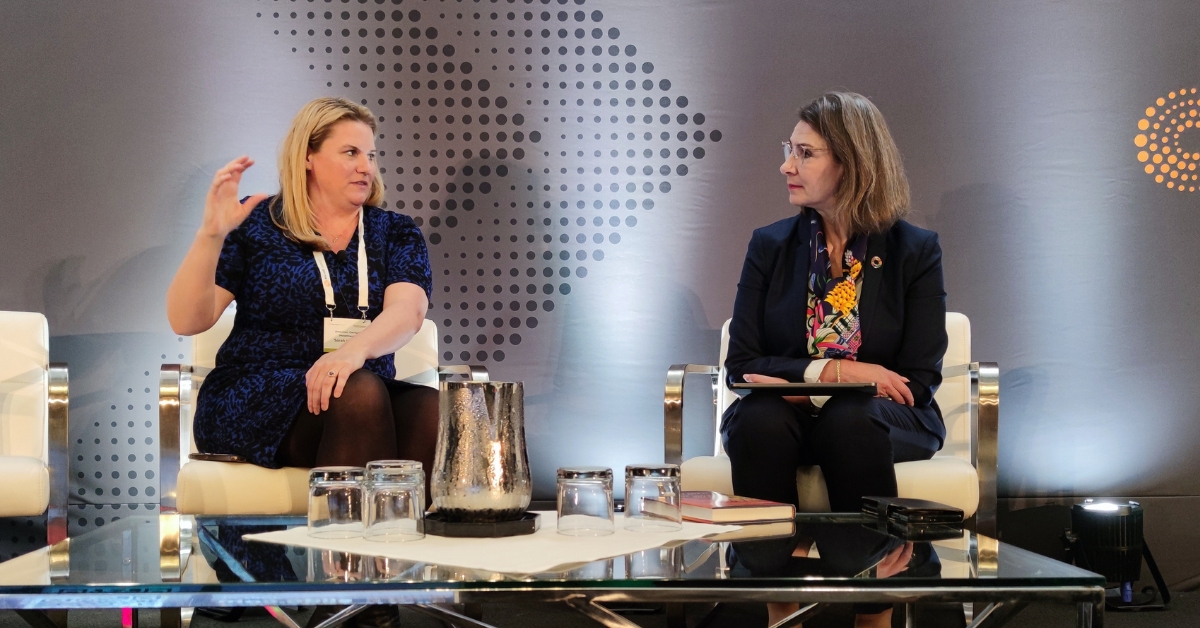
Earlier this month, I attended Sustainability Reporting & Communications USA 2022, hosted by Reuters Events, in Brooklyn, New York City, USA. Its purpose was to help business leaders navigate sustainability reporting transformation in different ways, including:
- Collecting quality, comparable and transparent data
- Data management and integration
- Regulation and global standards
- Financing sustainability
- Multi-stakeholder communication
Helle Bank Jorgensen, CEO and founder of Competent Boards, moderated two sessions at the two-day conference. The first was a discussion between Claus Aagaard, CFO at Mars Incorporated and Matthew Ellis, EVP and CFO at Verizon, on how finance drives sustainable business practices in their companies by integrating sustainability plans into the business strategy and committing to active stakeholder engagement.
The second session was a fireside chat with Sarah Bratton Hughes, Head of Sustainable Investing at American Century Investments, on what to disclose, how to disclose and where to disclose investor-grade data.
Here are five takeaways from the conference into sustainability reporting and communications:
- Use the different sustainability reporting standards and frameworks to complement each other. The International Sustainability Standards Board (ISSB) and Global Sustainability Standards Board (GSSB) continue to align and collaborate to advance the voluntary reporting landscape. The goal is to be consistent and comparable and not in competition with each other.
- ESG disclosures are what investors want. ESG disclosures are market-driven. Investors want them, particularly as a risk mitigation strategy (pricing in risk to make the company more resilient). These disclosures are also a way for value creation opportunities and to keep up with elevated stakeholder expectations, such as around company reputation. This makes the business case for sustainability stronger than ever.
- Mandatory reporting is coming. Voluntary reporting around ESG and sustainability will become mandatory. In the EU, the reporting obligations under the Corporate Sustainability Reporting Directive (CSRD) will apply on a phased basis starting in 2024 with listed companies. In the US, companies are being called to adopt climate disclosure as early as 2023, but this milestone will likely be delayed. Leaders should be proactive in this space, despite economic uncertainty, and go beyond box-ticking and compliance. Companies must move towards more impact reporting. Data collection, data standardization and data integration are some of the pain points they will need to address.
- Set the tone at the top. Sustainability governance, company purpose, culture and establishing trust with customers and stakeholders must all come from senior leadership. Boards must be armed with information, provide ESG oversight, and ask the right questions.
- ESG issues are business issues. ESG issues such as climate change, DEI, cybersecurity, supply chain transparency, biodiversity, human rights, stakeholder engagement and others must be integrated into a company’s purpose, strategy, and process. Leaders need a deeper understanding of these issues. These risks have a cost. Exploitation will inevitably catch up and impact a company’s bottom line. One of the speakers hoped that one day there would not be an ESG conference. It would just be a conference.
Elvin Madamba is the Program Manager for Competent Boards. Follow him on LinkedIn.
Back To News & Views